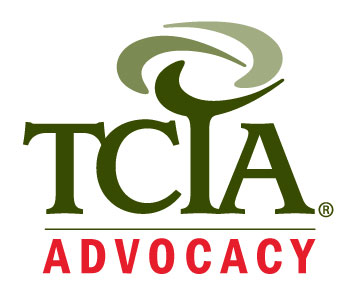On September 27, 2023, the House Education and the Workforce Committee’s Subcommittee on Workforce Protections held a hearing, “Examining the Policies and Priorities of the Occupational Safety and Health Administration” (OSHA), in which Assistant Secretary of Labor for Occupational Safety and Health Douglas Parker was the sole witness.
This oversight hearing offered Parker an opportunity to spotlight the agency’s regulatory actions. Additionally, it provided members of the subcommittee with an opportunity to question Parker about OSHA’s policies and priorities relevant to their constituents and stakeholders. This article provides a comprehensive summary of the hearing’s main discussions, and highlights particular issues of relevance that the Tree Care Industry Association (TCIA) is tracking.
Hearing overview
In his opening testimony, assistant secretary Parker highlighted OSHA’s various regulatory actions – including its National Emphasis Programs (NEP) on heat-illness prevention and preventing injuries from falls – increased enforcement against businesses with repeat violations and expanded its whistleblower protection program. He also discussed OSHA’s outreach and engagement programs, including its Susan Harwood Training Grants, which recently announced its 2023 grant recipients. TCIA, a repeat Susan Harwood Training Grant recipient, recently accepted nearly $150,000 to provide free hazard training to 775 employers and workers in our industry in 2024.
Republicans on the subcommittee emphasized that OSHA is pursuing a political agenda at the expense of regulatory activity that could actually help workers. They also criticized OSHA for continuing to pursue regulatory actions in response to the COVID-19 pandemic. Parker said OSHA is waiting for the White House to complete its review process before deciding what to do with any pending rulemaking on this issue.
Subcommittee Democrats pointed to the effects of a potential government shutdown on OSHA operations. They asked several questions about what a shutdown would do to OSHA’s regulatory activity. Parker explained that all work on rulemakings would be shut down, but not only for the term of the government shutdown. There would be ripple effects on the entire agency workstream, potentially causing even longer delays. Parker also said employer outreach and assistance would end, as would development of materials and proactive program inspections.
Tree care-operations rulemaking
During the hearing, OSHA and the subcommittee also respectively addressed the topic of the agency’s tree care-operations rulemaking. TCIA has long supported OSHA’s efforts to develop a workplace safety standard tailored to the specific hazards of the tree care industry. Currently, the agency regulates our industry using a patchwork of standards designed for other industries. This approach overlooks serious work-site hazards specific to tree care, and can misidentify the best practices and procedures that mitigate the risk of work-related injuries. While OSHA has been working to issue a proposed standard for tree care operations since the fall of 2020, the target date for the issuance of this standard continues to be delayed.
In advance of the hearing, TCIA sent a letter to Subcommittee on Workforce Protections Chair Kevin Kiley (R-CA) and Ranking Member Alma Adams (D-NC). The letter highlighted the industry’s concerns regarding this ongoing delay and sought the subcommittee’s backing to make sure this safety standard remains a focal point for the agency. Furthermore, TCIA-affiliated companies operating in Ranking Member Adams’ district also contacted her office before the hearing. They urged her to seek information about the status of OSHA’s tree care-operations rulemaking.
During the hearing, U.S. Reps. Kiley and Adams and assistant secretary Parker all spoke about the tree care-operations rulemaking. In his opening remarks, Kiley expressed concerns about OSHA’s lack of advancement on industry-backed initiatives, such as the tree care standard. Parker confirmed the ongoing efforts to develop a rule safeguarding tree care workers. Meanwhile, Adams referenced concerns from her constituents when directly asking about the current status of the tree care standard.
Heat-injury and -illness prevention in outdoor and indoor work settings rulemaking
One other priority of OSHA that received significant focus is the agency’s initiative to address heat illness. Adams spotlighted the extreme heat challenges faced by farm workers. Parker outlined the complexities of employing the general-duty clause in such situations. Specifically, the myriad elements OSHA must prove to apply the general-duty clause successfully on an individual basis hinder its use for widespread issues. Furthermore, he mentioned OSHA’s ongoing efforts to develop a standard to regulate workplace exposure to hazardous heat.
Currently, this standard is in the pre-rulemaking stage. OSHA recently convened a Small Business Advocacy Review (SBAR) panel to gather input from small-entity representatives (SERs) that will shape the eventual proposed rule. Small businesses, including representatives from five TCIA companies, convened over videoconferences during September. SERs participating in the videoconferences provided feedback to SBAR members on OSHA’s proposed regulatory framework.
The proposed regulations could require procedures to identify heat hazards for employees; administrative controls, such as providing drinking water and rest breaks in cool areas; acclimatization protocols; supervision of employees for symptoms of heat-related illness, and procedures for when symptoms occur; and heat training for employees and supervisors.
Following the conclusion of the videoconferences, the SBAR panel is now tasked with issuing a report that OSHA must consider before moving forward in the rulemaking process.
Conclusion
In summary, the oversight hearing touched on many important regulatory developments and actions that OSHA is focusing on. TCIA will continue to work with the subcommittee to advance the tree care standard and ensure our industry is regulated appropriately to support our member companies’ commitments to safety.



